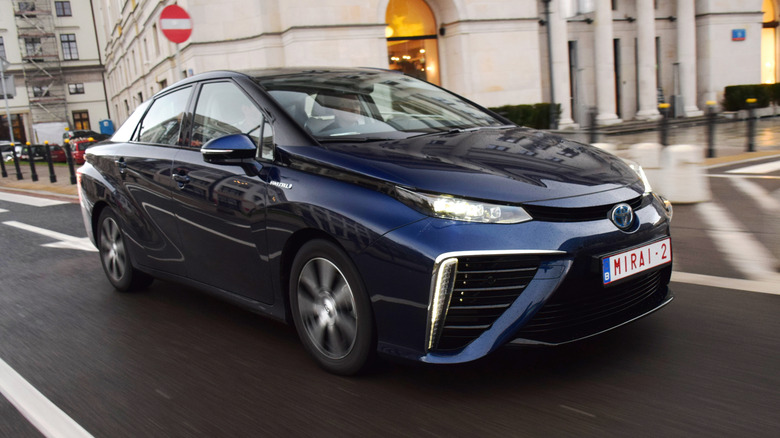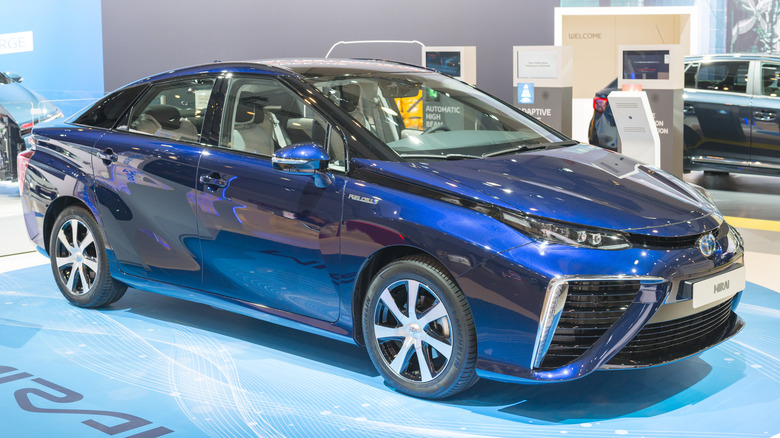What Is The Lawsuit Against The Toyota Mirai About & Where Was It Filed?
The Toyota Mirai is a hydrogen-powered sedan that represents a possible glimpse into the future of clean transportation. Boasting zero emissions and a design that focuses on sustainability, the Mirai is reshaping how we think about eco-friendly driving. But while the Mirai itself was designed to turn heads for its innovation, a lawsuit means it's now making headlines in the courtroom instead of the showroom. So, what is the lawsuit against the Toyota Mirai about, and where was it filed?
The lawsuit alleges that Toyota and partner First Element Inc. have monopolized the hydrogen fuel market and misrepresented the environmental impact of the Mirai. The suit was filed in California by a group of Toyota Mirai owners and lessees in July 2024. According to the suit, Toyota isn't actually making clean hydrogen for use in the Mirai and is even keeping the fuel from reaching consumers.
The suit also alleges the Mirai pollutes the environment more than gas-powered cars and accuses Toyota of violating several acts: The Sherman Act, which prohibits monopolies; the Cartwright Act, which promotes fair competition; and the Magnuson-Moss Act, which addresses consumer warranties. The plaintiffs want a trial by jury and are seeking damages.
The Toyota Mirai has problems, according to a 2024 lawsuit
Several class action lawsuits have been brought against Toyota over the past few years for everything from engine defects in the Tundra to the Highland's rear liftgate issues. Joining this list is the lawsuit over the hydrogen-powered Mirai, which allegedly isn't as clean as it claims. But what else does this lawsuit say about the car itself?
The Toyota Mirai doesn't perform in terms of range, getting far less than the advertised 357 miles for the top-of-the-line Mirai Limited and 402 miles for the XLE versions. The real numbers are reportedly around 257 and 302 miles, respectively. Drivers claim that the car isn't great as a daily driver, either, due to a lack of refueling stations. That means problems for owners, including unexpectedly longer drives and, oftentimes, a malfunctioning Mirai.
Then there's the dramatic price increase of hydrogen fuel, which jumped from $13 per kilogram in 2022 to around $36 per kilogram just two years later. The plaintiffs claim that all of these problems together have drastically affected the Mirai's resale value, which dips below 20% after only five years on the road.

